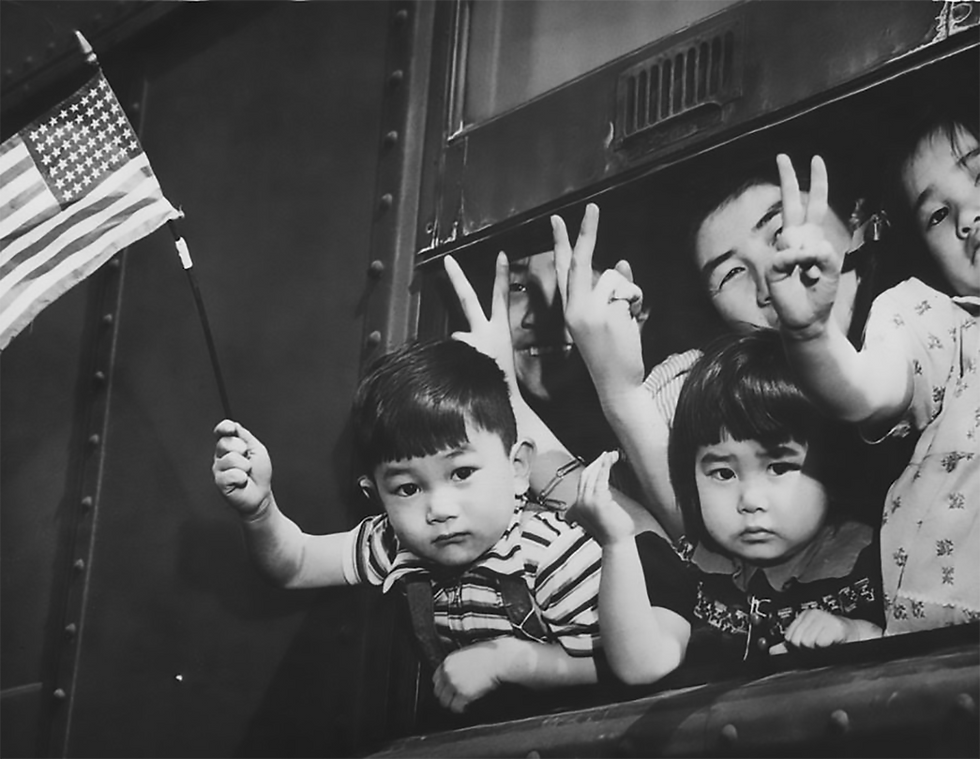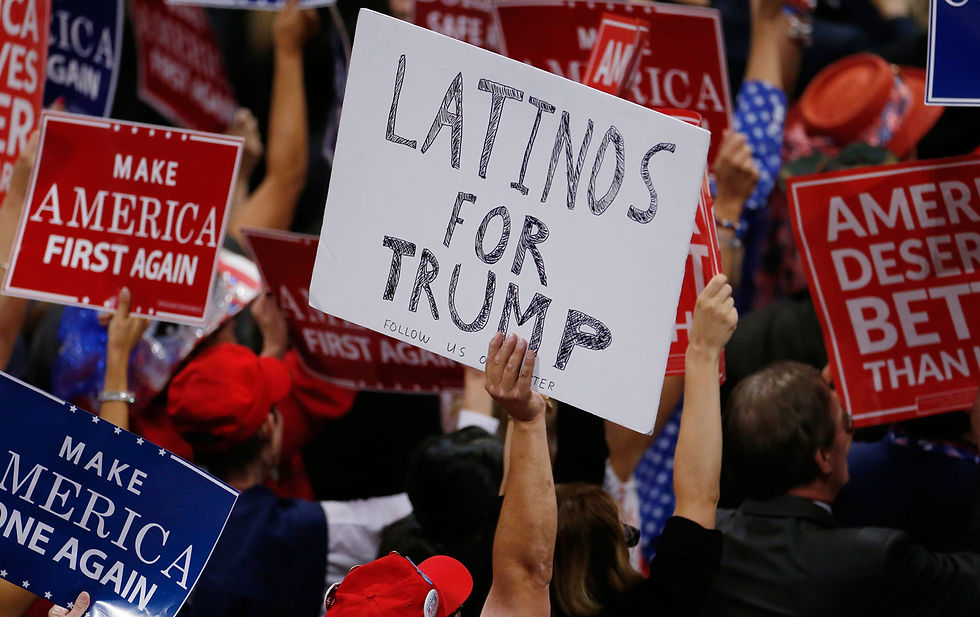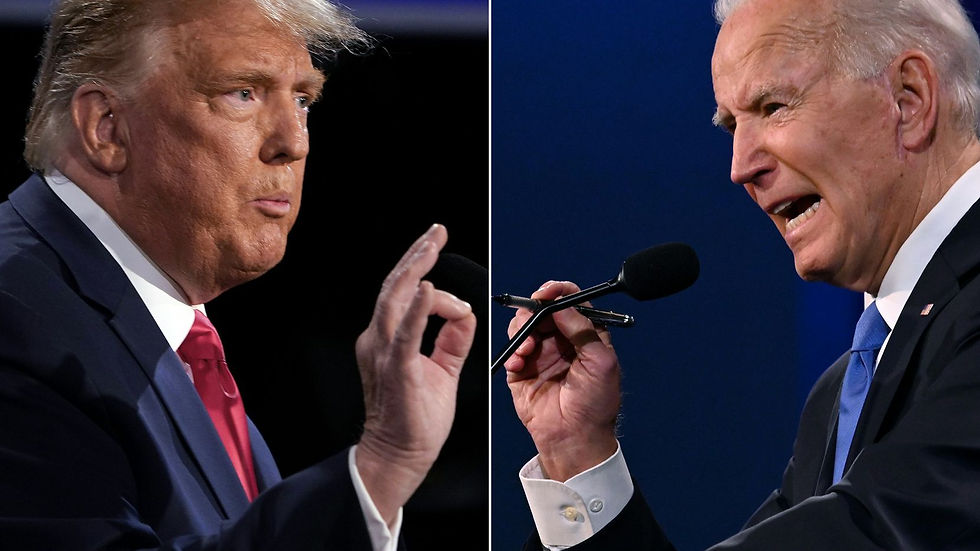From the 15th Amendment to Black Lives Matter: How Has Race Influenced Voting?
- charlottenoeljones
- Sep 13, 2021
- 4 min read
Updated: Sep 16, 2021

Why voters vote the way they do is complex and there are several factors that influence voting and party affiliation in the United States. And although people like to believe that their voting is 100% based on free will, research says something else. While no one goes to the polls thinking 'I'm going to vote blue because I'm a woman' or 'I'm voting republican because I live in Texas', the groups we're in have huge influences on our values and politics. No, living in Texas doesn't make you a Republican, but the culture in Texas will influence your choice of what unnecessary and maybe even borderline offensive political bumper sticker you decide to buy off of Etsy (and you know, maybe the way you vote). One influence on voting political scientists have been studying for a while is race. What race we are influences nearly everything. Your race may be why the cashier at 'Whole Foods' was short and dismissive of you yesterday, or your race may be why you always seem to avoid getting speeding tickets. And your race certainly influences whether you vote Republican, Democratic, or if you don't vote at all. In this post, I will look at voting habits across White, Black, Latino, and Asian voters as well as the connection people have with their race.

First, let's look at the way some white people identify. Unsurprisingly, many white people do not identify as white, but as "individuals". Moreover, many white people also say they don't have a strong connection with their race and race is unimportant. This disconnect with race means that white people are less aware of racial discrimination. A study called 'The Whiteness Project' reveals that 60% of whites in America believe race relations are 'generally good' when that is not reality given the increase in civil rights protests in the past few years (Dow, 2014). However, while the Republican party is still overwhelming white, more and more White voters are turning to the Democratic party. I believe that this is so because of the active discussion about race we are having now in America. White voters are shifting away from defining themselves as "individuals" or by their ethnicity (Think: I'm not white, I'm Italian), and instead recognizing that they do have a racial identity.

On the other end of the spectrum, Black voters heavily identify with their race and the culture surrounding it. In a study done by the Pew Research Center, political scientists observed that out of the races surveyed, Black adults were more likely to say that what happens to their race-and Whites, Hispanics, and Asians- affects them either a lot or somewhat (Cox, 2019). Given this information, and given that race relations are a hot topic in politics at the moment, it is not surprising that Black voters are typically democratic. However, something that is worth looking into is while most Black voters strongly lean democratic, most Black voters are not strong democrats. A study done by Third Way and the Joint Center for Political and Economic Studies showed that only 46% of Black voters call themselves strong democrats. While only 17% identify as conservative, that leaves a huge percentage that are moderate democrats (Fulton & Pougiales, 2019). I personally think the amount of racial discrimination in the United States has made many black voters distrust the system and made them less likely have enthusiasm about working with the system to make change. I personally don't think it's because black voters don't have strong opinions about politics. In a study done by the Pew Research Center, Black voters have less trust in the government compared to other voters. When the study done by Fulton and Pougiales was published, less than 30% of Black voters surveyed trusted the government (“Public Trust in Government: 1958-2021,” 2021).

Asian American voting trends are also fascinating to look at because their political and personal identity has shifted over the past few decades. When several Asians immigrated to the United States, they tried to fit in and 'Americanize' themselves in every way they could. For example, many took 'white' names and tried to fit into the 'model minority' stereotype. However, since the late 1990's, the Asian American youth have fought to reclaim their identity and voting has shifted from conservative to democratic (Tures, 2020).

The last group to look at are Latinos. Latinos are a very unique group research because their voting habits are not what most people would expect. While they mainly vote democratic, a large portion of them vote republican. Furthermore, many democratic Latinos have republican values like anti-abortion and anti-socialism (Insider How Latinos Voted in 20202 - Bing Video, n.d.).
In conclusion, race plays a very important role in voting. Studying race and identity can help political scientists better understand trends in voting and can help politicians understand whose votes they actually need and how to properly talk to voters. From the given data, it is clear that most minority groups are starting to lean more democratic and republican politicians seem to be losing more voters every year. Moreover, everyone is becoming more conscious about race and privilege which has a huge influence on elections. As a final note, it is important to recognize that 'groupthink' is a very real thing that can negatively influence voting, but voting based on group identity doesn't always have to be a bad thing. Voting based off of group values can bring new perspectives and diversity to politics, which is something that American politics desperately needs right now.
Bibliography
Dow, W. (2014). Whiteness project. https://whitenessproject.org/
Gramlich, J. (2020, October 26). What the 2020 electorate looks like by party, race and ethnicity, age, education and religion. Pew Research Center. https://www.pewresearch.org/fact-tank/2020/10/26/what-the-2020-electorate-looks-like-by-party-race-and-ethnicity-age-education-and-religion/
Cox, K. (2019, July 11). Most U.S. adults feel what happens to their own racial or ethnic group affects them personally. Pew Research Center. https://www.pewresearch.org/fact-tank/2019/07/11/linked-fate-connectedness-americans/
Fulton, J., & Pougiales, R. (2019, December 30). A nuanced picture of what black americans want in 2020 – third way. Third Way. https://www.thirdway.org/memo/a-nuanced-picture-of-what-black-americans-want-in-2020
Public trust in government: 1958-2021. (2021, May 17). Pew Research Center - U.S. Politics and Policy. https://www.pewresearch.org/politics/2021/05/17/public-trust-in-government-1958-2021/
Tures, J. A. (2020, September 14). Asian Americans’ political preferences have flipped from red to blue. The Conversation. https://theconversation.com/asian-americans-political-preferences-have-flipped-from-red-to-blue-145577
Insider how Latinos Voted in 20202 - Bing video. (n.d.). Retrieved September 13, 2021, from https://www.bing.com/videos/search?q=insider+how+lations+voted+in+20202&&view=detail&mid=B8394965989A28DA4315B8394965989A28DA4315&&FORM=VRDGAR&ru=%2Fvideos%2Fsearch%3Fq%3Dinsider%2Bhow%2Blations%2Bvoted%2Bin%2B20202%26FORM%3DHDRSC4



Comments